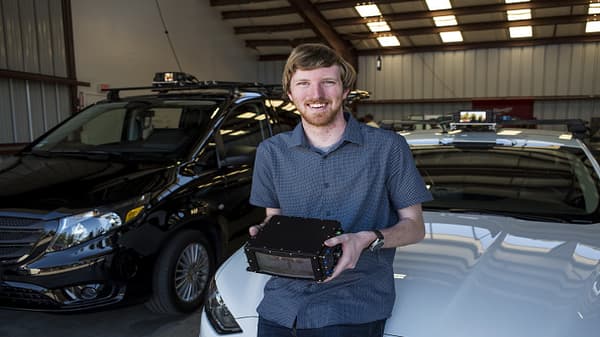Founders: Jason Eichenholz, Austin Russell (CEO)
Launched: 2012
Headquarters: Palo Alto, California
Funding: $36 million
Valuation: N/A
Key technologies: Lasers, machine learning, artificial intelligence
Disrupting: Autonomous vehicles
If self-driving cars are to someday become a reality for all (or even some) of us, they're going to need one essential piece of equipment: lidar. And that's what Luminar is developing. Simply put, lidar is like radar, but better. Rather than send out radio waves, it emits pulses of infrared light (lasers that human eyes can't see) and then measures how long they take to come back after hitting an object.
Read More: FULL LIST: 2018 DISRUPTOR 50
Luminar says its lidar system compiles all this information into a 3-D picture of surroundings in real time. The images are so detailed that Luminar's system can not only see that they're there but also identify what they are (a bus, a person on a bike, someone's leg). Once all that information is identified, a car's computer can predict how the object will act and therefore what the car should be doing.
Luminar was started in 2012 by Austin Russell, who dropped out of Stanford at 17 to get his company off the ground. He's the CEO, and so far the company has raised $36 million in seed funding from Canvas Ventures, GVA Capital and 1517 Fund, mostly on the belief that Luminar's lidar system can see farther and better than anything on the market today. This includes the lidar sensor made by its main competitor, Velodyne.
Palo Alto-based Luminar has about 350 employees in its three locations, which includes Orlando and Colorado Springs. There are plenty of companies scrambling to develop lidar for the autonomous vehicle (AV) market, but Luminar's recent deal with Toyota is a clear sign the company's technology is being taken seriously. In September the automaker announced that its latest line of autonomous vehicles will use Luminar's lidar system.




























































